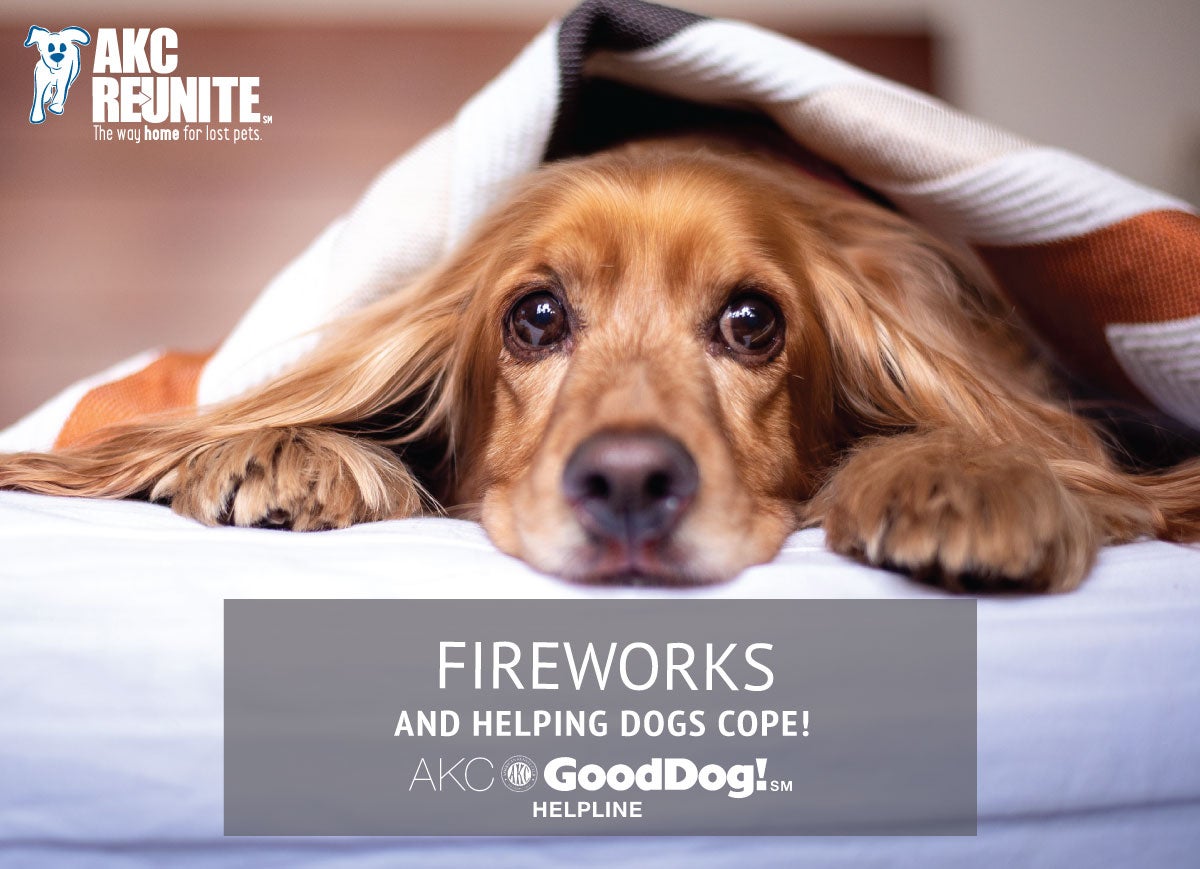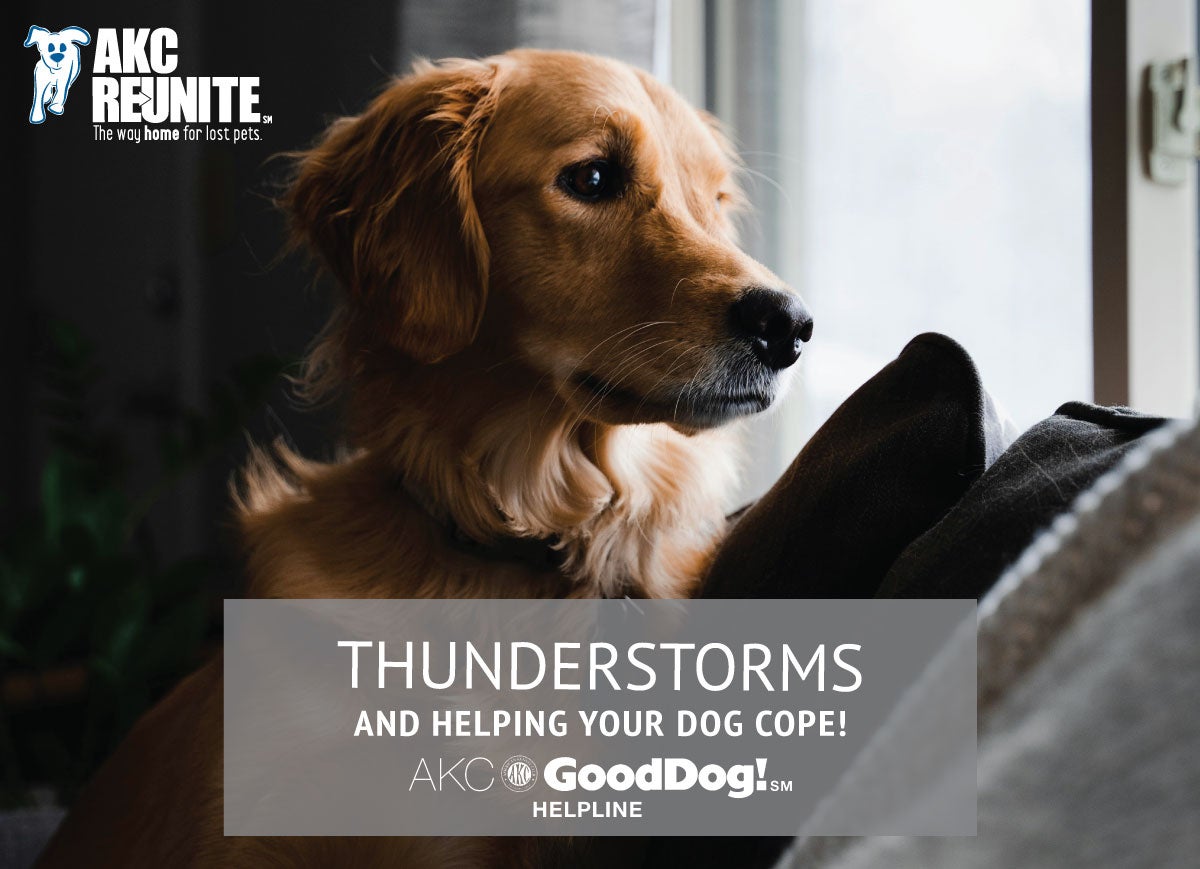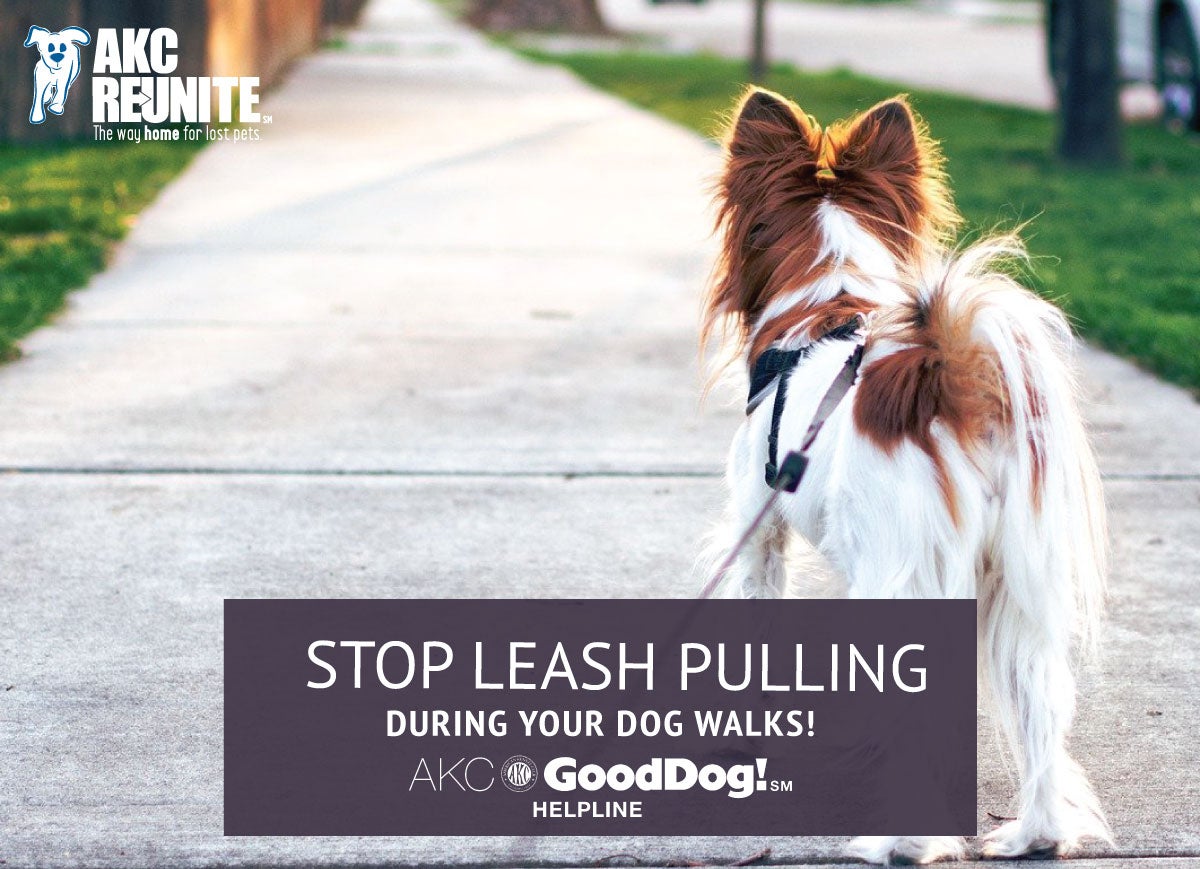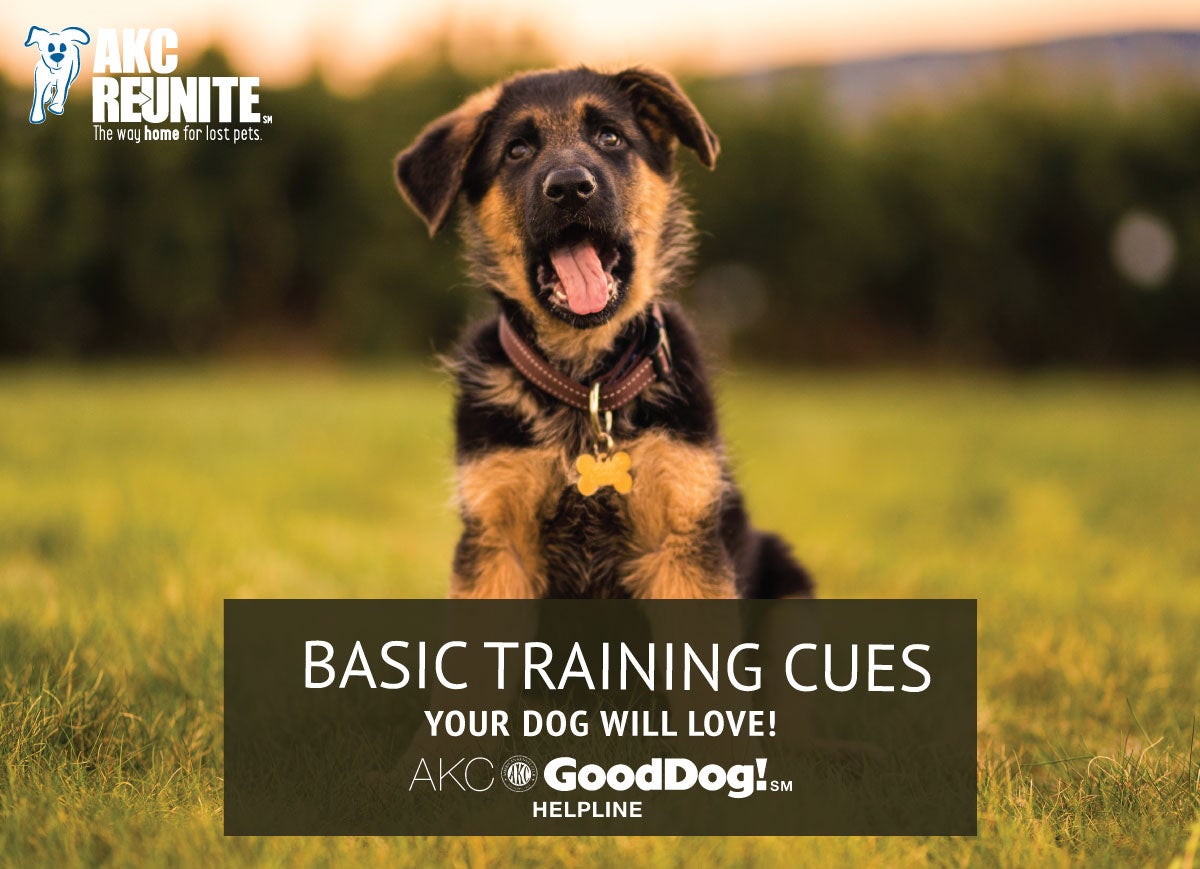Help Your Dog Cope with Loud Noises — Like Fireworks!
Brought to you by the AKC GoodDog! Helpline – the AKC’s 7-day-a-week training support service
By: American Kennel Club
Fear of loud noises can be stressful for dogs and can limit the activities they can enjoy. Thunder is probably the most common noise phobia trigger, especially since a dogs’ sensitivity to the changes in barometric pressure can trigger fearful reactions to thunder long before humans even hear it! However, loud cars and seasonal fireworks are known to be just a traumatizing to pets!
The Fourth of July, of course, comes with fireworks that can be scary for many pets, so finding ways to manage the situation in order to ease your dog’s fears is a must. Fireworks, especially, are unique sounds and since they only happen a few times a year your dog may not have many chances to get accustomed to them.
Pay attention to weather forecasts and schedules of holiday fireworks displays so you can prepare your dog before the ruckus starts. Check out these helpful options to keep your dog feeling safe before things go boom:
1. Distract with a game or activity
Before your dog has a chance to get upset about a noise, try distracting them with a game or activity. Practice some tricks and/or obedience skills and give nice rewards for your dog when they are focusing on you. When your dog can’t focus, stop. Don’t create an unpleasant association with games and behaviors that are normally fun.
2. Reward calm behavior
Don’t wait for your dog to exhibit stress before you give them attention. Play calming music or turn on the television to help muffle the sounds.
3. Provide a safe haven for your dog
Put your dog’s crate or bed in a new safe space or enhance a space that is already a pet favorite. Give your dog a very special long-lasting treat or a hollow rubber chew toy that can be stuffed with something good so they can feel safe.
4. Leave the crate door open
If your dog’s fearfulness turns to panic, they may injure themselves trying to escape the frightening noises, so consider leaving the crate door open. However, DO NOT open an outside door unless your dog is still fully crated or secured behind an interior door – this will eliminate any chance for them to bolt in fear. You can also consult with your pet’s veterinarian about medication to help their anxiety and try not to leave a fearful dog home alone during times that fireworks are booming.
5. Condition your dog to loud noises
Whether your conditioning a puppy or an older dog, take it very slowly because it may take months to alleviate established fears. Get a helper to drop a book (from a good distance) as you reward and play with the dog. It’s normal if the dog startles at first. Stay calm and cheerful yourself, give treats, and your dog will learn that it’s nothing to worry about. The book dropping can get gradually louder and nearer as the dog is less affected by the noise.
6. Play recordings of scary noises at a low volume
While you’re feeding your dog, playing their favorite game, or engaging in any fun activity, play recordings of scary noises at a low volume. Just remember to do these fun things at normal times too, so your dog doesn’t think that they only go with storms or fireworks! Gradually increase the volume as the dog feels comfortable. If at any point you see fear, reduce the volume to a tolerable level and start there.
7. Consider dog ear muffs
Introduce ear muffs to your dog gradually, as you would any new thing. For the first few days, place them near the bowl as she eats. Then put them loosely around the dog’s neck for a few minutes while you give lots of special treats. Over several days (or more, depending on your dog), move gradually to putting them over the ears, for a few minutes at a time while again giving more good treats. Do this well in advance of the Fourth of July and storm season.
Any calming device, whether it be earmuffs, soft music, or a snug dog shirt, should be occasionally used when it’s quiet, the weather is good and your dog is happy. This will help develop positive associations with them—not just scary ones.
For more tips and advice on training your dog, join the AKC GoodDog! Helpline, a seven-day-a-week telephone support service staffed by experienced dog trainers: www.akcgooddoghelpline.org.
RELATED POSTS
Thunderstorm Terror and Helping Your Dog Cope
April showers might come with thunder, and while most dogs aren’t fazed by it, some are very afraid.
Stop the Leash Pulling on Walks
Does your dog’s relentless tugging make it impossible to enjoy a walk? Poor leash manners are one of the most common issues that AKC GoodDog Helpline trainers are asked about. But don’t despair; there are ways you can make it better.
Basic Training Cues Your Dog Will Love
A good relationship with your puppy doesn’t just happen overnight, but it’s easy to build one with simple cues and positive reinforcement training!
